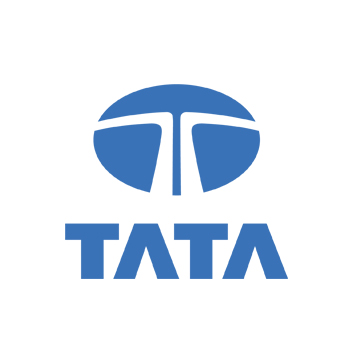What is working capital loan?
A working capital loan is a loan that a business takes out to pay for its daily operations. Most of the time, these loans are used to cover a company’s short-term operating needs. They are not utilised to purchase long-term investments or assets. Some of these needs include paying rent, employee wages, and debts. A company uses these loans to pay for its daily business. These loans are basically corporate debt. Secure Finance created it specifically for SMEs. Our loan helps offset working expenses during low sales or revenue, ensuring your business stays afloat. Tailored for SMEs and start-ups in India, our working capital loan combines the best features from various loan types, creating a comprehensive offering. We’ve simplified the process to make it easier for you to access the funds you need.
Types of Working Capital Loan
Line of credit loan is a financial arrangement that grants a borrower access to a predetermined amount of funds, similar to a revolving loan. Unlike a traditional loan with a fixed amount and term, a line of credit allows borrowers to withdraw funds as needed, up to the specified limit. Only the amount borrowed is subject to interest; after repayment, the funds are free to be used again. Banks, credit unions, and other financial institutions frequently offer lines of credit to both individuals and businesses. They provide flexibility for managing cash flow, handling unexpected expenses, or capitalising on opportunities. The terms and interest rates of lines of credit vary based on the borrower’s creditworthiness and the lender’s policies. Lines of credit can be secured with collateral or unsecured, depending on the borrower’s financial situation and the lender’s requirements. They are a versatile financial tool for short-term financing needs and can be an essential part of a well-rounded financial strategy.
Most firms use an overdraft facility, in which the buyer obtains a certain amount to be used towards running expenses. The connection between a company and the lending authority defines the interest rates and loan limits. Additionally, rather than having to pay interest on the entire amount, firms only have to pay interest on the portion that they actually use. Overdraft loan is the most economical option because the borrower saves interest by continuing to deposit the money as needed.
Invoice financing, also known as Accounts Receivable Financing or Invoice Factoring, is a financial arrangement where a business sells its outstanding invoices to a third-party financial institution, known as a factor, at a discount. It enables the business to access a significant portion of the invoice’s value upfront, rather than waiting for customers to pay at their own pace. The financing company assumes the responsibility of collecting payments from the customers and deducts a fee for their services. Invoice financing helps businesses improve cash flow, meet immediate financial needs, and reduce the risks associated with late or unpaid invoices, making it a valuable tool for managing working capital and supporting business growth.
A Merchant Cash Advance (MCA) is a financial product that provides businesses with quick access to capital in exchange for a portion of their future credit card sales or daily bank deposits. Unlike traditional loans, MCAs are not based on a fixed interest rate but rather involve the purchase of a percentage of the business’s future revenue at a discount. This means that the repayment amount fluctuates with the company’s daily sales, making it a flexible option for businesses with irregular income streams. While MCAs can offer fast funding solutions, they often come with high costs and can lead to a cycle of debt if not managed carefully. Therefore, businesses considering an MCA should carefully evaluate the terms and assess their ability to meet the repayment requirements before proceeding with this financing option.
Investor financing, also known as equity financing, is a form of raising capital for a business by selling ownership stakes to investors in exchange for funds. Unlike debt financing, where companies take out loans and must repay them with interest, investor financing involves selling shares or ownership rights in the company. This approach allows businesses to secure funding without incurring debt, and it can provide access to expertise and guidance from investors. However, it also means giving up a portion of ownership and, in some cases, decision-making control to the investors. Startups and expanding businesses generally use investor financing when seeking outside funding for expansion, research and development, or other strategic initiatives.
Supplier credit is a financial arrangement in which a business purchases goods or services from a supplier and is allowed to defer payment for a specified period, typically 30, 60, or 90 days. The supplier offers the buyer this credit arrangement, which enables the buyer to effectively manage cash flow and inventory. Supplier credit can be an essential tool for businesses to maintain liquidity and optimise working capital, as it provides a temporary financing solution without the need for immediate cash outlays. It’s a common practice in various industries and often involves negotiation between the buyer and supplier to establish favourable credit terms and conditions.
A government-sponsored loan is a financial assistance programme in which a government entity, typically at the federal or state level, partners with private lenders or directly provides funds to individuals, businesses, or specific industries to promote economic growth, stimulate investment, or support public policy objectives. These loans often come with favourable terms such as lower interest rates, longer repayment periods, or reduced down payment requirements compared to conventional loans. Government-sponsored loans can encompass a wide range of purposes, including housing (e.g., FHA and VA loans), education (e.g., federal student loans), small business development (e.g., SBA loans), and more. They are designed to provide financial support and opportunities to eligible borrowers who might otherwise face challenges obtaining financing through traditional means.
Working Capital Loan Benefits And Features
Short term
loan
Tenure is as short as 6 months upto 24 months
Improved cash
flow
Helps meeting their short-term expenses
Improved financial position
Increasing their assets and reducing their liabilities
Reduced
risk
Helps to avoid financial problems, such as bankruptcy.
Unsecured
loan
Usually do not require any collateral
Fast and
Flexible
Quick processing
Low Interest
Rate
Interest rate from 11-16% p.a
Secure your
ownership
Raise money without giving up your ownership
Eligibility and Documents required for Working Capital Loan
Note: This is an indicative list that may vary depending on your unique loan application.
- Eligibility
- Nationality: Indian Resident
- Employment: Self employed
- Age limit: 21- 70 years
- CIBIL Score of 700 or higher
- A business that has been in operation for more than 3 months
- No previous loan default
- Documents
- Proof of identity: Pan Card, Aadhar Card, Passport, Driving License
- Residence Proof: Electricity bill, Telephone bill, Passport copy
- Income Proof: Last 1 year bank statement, Last 2 years audited balance sheet by the CA, GST Challans, and Tax Audit reports.
- Proof of Business: Income Tax Return, Memorandum of Association (MOA), Articles of Association (AOA), Certified Copy of Partnership Deed
- Proof of Business Address: Electricity bill, Telephone bill, Lease Agreement
How to manage your working capital?
- Some tips on how to manage your working capital:
- Track your working capital regularly. It will assist you in early problem identification. You can use a spreadsheet or a specialized working capital management tool to track your working capital.
- Make sure that you have enough cash on hand to cover your day-to-day expenses. It will help you avoid cash flow problems. Setting up a cash flow budget and keeping track of your regular expenses might help you achieve this.
- Pay your bills on time. Your credit score will improve as a result, making it easier for you to obtain a working capital loan in the future.
- Invest in inventory and accounts receivable management. It will help you improve your cash flow and reduce your working capital needs. You can do this by optimizing your inventory levels and collecting timely payments from your clients.
Working Capital Loan Interest Rates 2023
Frequently Asked Questions
Working capital loan meaning is a type of financing that provides funding to cover a business day-to-day operational expenses, such as wages, inventory, and rent.
The types of working capital finance include cash credit, overdraft, invoice financing, trade credit, and factoring.
Yes, you can get this loan without any security or collateral
A working capital demand loan (WCDL) is a short-term loan that businesses can use to cover day-to-day expenses and short-term financial obligations. Unlike traditional term loans, it allows the lender to demand repayment at any time.
It is a short-term loan that is used by a business to meet its short-term financial needs.
To qualify for working capital finance, a business should have a positive cash flow, a good credit history, and a solid business plan. The lender may also require collateral or a personal guarantee
Safeguarding Funding Working capital loans are specifically made to support companies in their daily operations. Our products include working capital loan for business, working capital loan for SME, and working capital loan for startup.
Repayment tenure ranges from 12 to 36 months for working capital loan India.



